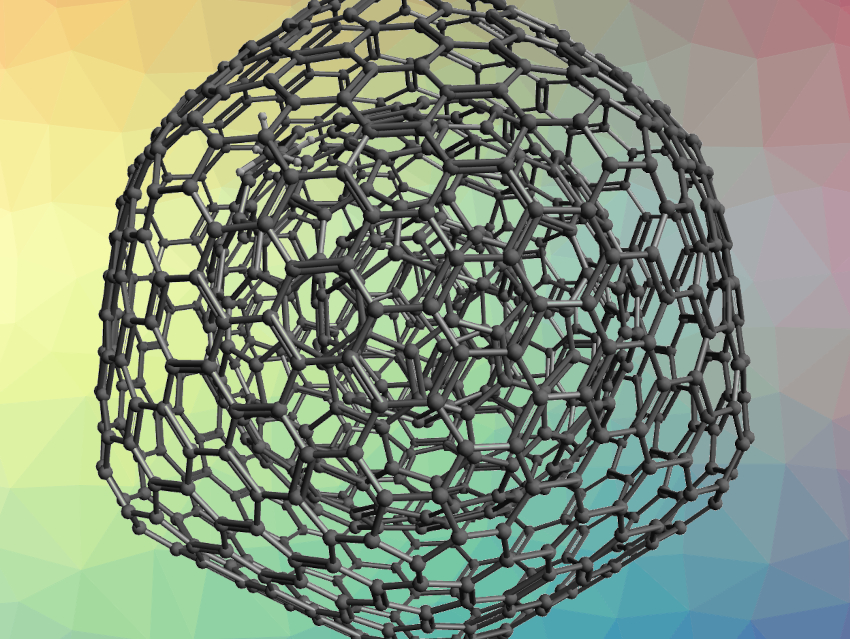Carbon nanomaterials such as fullerenes have many potential applications. Multishell fullerenes, i.e., nanostructures composed of fullerenes of different sizes in a concentric arrangement, are also called carbon nano-onions. They have promising properties for applications, e.g., in energy conversion and storage. Carbon nano-onions can be functionalized covalently or, for example, by the intercalation of alkali metals. However, their controlled functionalization and subsequent characterization can be challenging.
M. Eugenia Pérez-Ojeda, Andreas Hirsch, University of Erlangen-Nuremberg, Erlangen, Germany, Luis Echegoyen, University of Texas at El Paso, USA, Gonzalo Abellán, Universidad de Valencia, Paterna, Spain, and colleagues have developed a vapor-phase intercalation of carbon nano-onions with alkali metals and, for the first time, performed an in situ Raman study of the controlled potassium intercalation process. The intercalated compound was prepared via a reaction of carbon nano-onions and potassium under an argon atmosphere in a glass vial kept at 180 °C for three days. For the in situ Raman analysis, the team used high-vacuum conditions.
The functionalized nano-onions were characterized using X-ray diffraction and transmission electron microscopy (TEM), among other methods. The Raman study showed a Fano resonance, characteristic for highly doped potassium-intercalated compounds. The resulting intercalated carbon nano-onions were covalently functionalized using n-hexyl iodide or phenyl iodide and the products were characterized using a range of analytical techniques. Overall, the work provides insights into potassium intercalation in carbon nano-onions and their reductive functionalization. This could be useful for the design and synthesis of carbon nano-onions for applications.
- Carbon Nano-onions: Potassium Intercalation and Reductive Covalent Functionalization,
M. Eugenia Pérez-Ojeda, Edison Castro, Claudia Kröckel, Matteo Andrea Lucherelli, Ursula Ludacka, Jani Kotakoski, Katharina Werbach, Herwig Peterlik, Manuel Melle-Franco, Julio C. Chacón-Torres, Frank Hauke, Luis Echegoyen, Andreas Hirsch, Gonzalo Abellán,
J. Am. Chem. Soc. 2021.
https://doi.org/10.1021/jacs.1c07604




